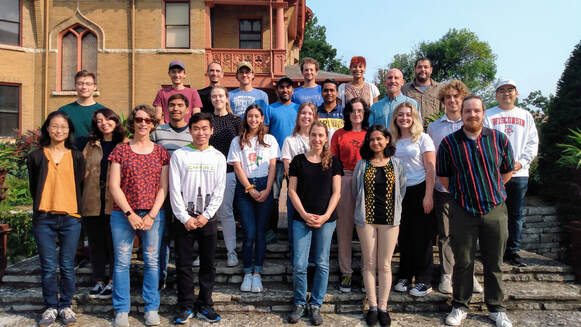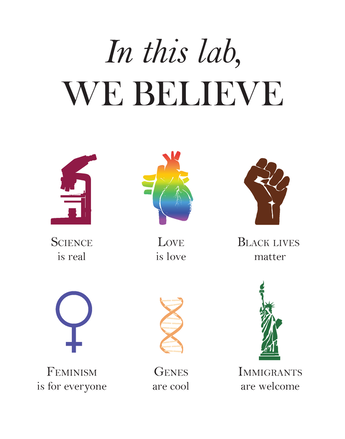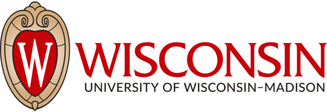Our missionUnderstanding how beneficial associations between plants and microbes develop is an important biological question that is particularly relevant in modern agriculture and economy. Our goal is to use microbes better to maintain the sustainability of our agriculture by protecting the environment over the long term and reducing costs for food, feed and biofuel production.
Our laboratory is part of the Department of Bacteriology and the Department of Plant & Agroecosystem Sciences at the University of Wisconsin - Madison. |
Our core valuesWe believe that diversity is a source of strength, creativity, and innovation. We value each individual's contributions and respect the profound ways in which their identity, culture, background, experience, status, abilities, and opinion enrich the university community. We commit ourselves to excellence in teaching, research, outreach, and diversity as inextricable goals. Our lab aims to make science more inclusive of people of all identities.
|
Where we are coming from |
The University of Wisconsin–Madison occupies ancestral Ho-Chunk land, a place their nation has called Teejop (day-JOPE) since time immemorial.
In an 1832 treaty, the Ho-Chunk were forced to cede this territory. Decades of ethnic cleansing followed when both the federal and state government repeatedly, but unsuccessfully, sought to forcibly remove the Ho-Chunk from Wisconsin. This history of colonization informs our shared future of collaboration and innovation. Today, UW–Madison respects the inherent sovereignty of the Ho-Chunk Nation, along with the eleven other First Nations of Wisconsin. |


